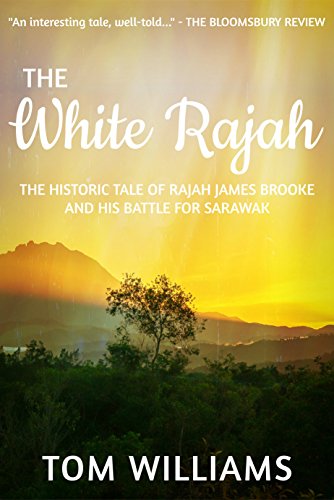Last weekend Endeavour republished The White Rajah.
The White Rajah was the first book I ever wrote. When I wrote it, I had no idea that it was going to turn out to be the first of a trilogy: the John Williamson Chronicles.
Like many people starting their first novel, I wanted to write something very serious – not, perhaps, the Great British Novel, but definitely a meaningful book. Whether I succeeded or not is really for you to judge, but publishers certainly told me that it was too serious for a first book. My agent urged me to go away and write something more commercial. The result was the Burke books, which Endeavour republished over the last few weeks and which I hope you are enjoying.
I was worried that people who had read The White Rajah would be a bit thrown by the change of tone that came with the move to James Burke. I wrote a blog piece about this, which I felt the time was amazingly self-indulgent and I did wonder if I should publish it. It turned out to be one of the more popular things I’ve posted. So now I’m reposting it although my concern this time is that after the relatively light-hearted (if bloody) adventures of James Burke the rather heavier themes of John Williamson might come as a shock.
Apples and oranges


People are multi-talented and have many different sides and opinions, so why should authors be any different? Some authors write different genre books using multiple names, you chose to use your own name for all of your books, but I think what is important is simply writinng a good story, and writing it well, which you do!
I was just worried that people would get a bit thrown by the difference in tone between the two series. I mean, if JK Rowling had written her (often gory) detective stories under her own name, I can imagine a lot of children (and their parents) wondering what the hell was going on at Hogworts.
Thanks for the kind words too.